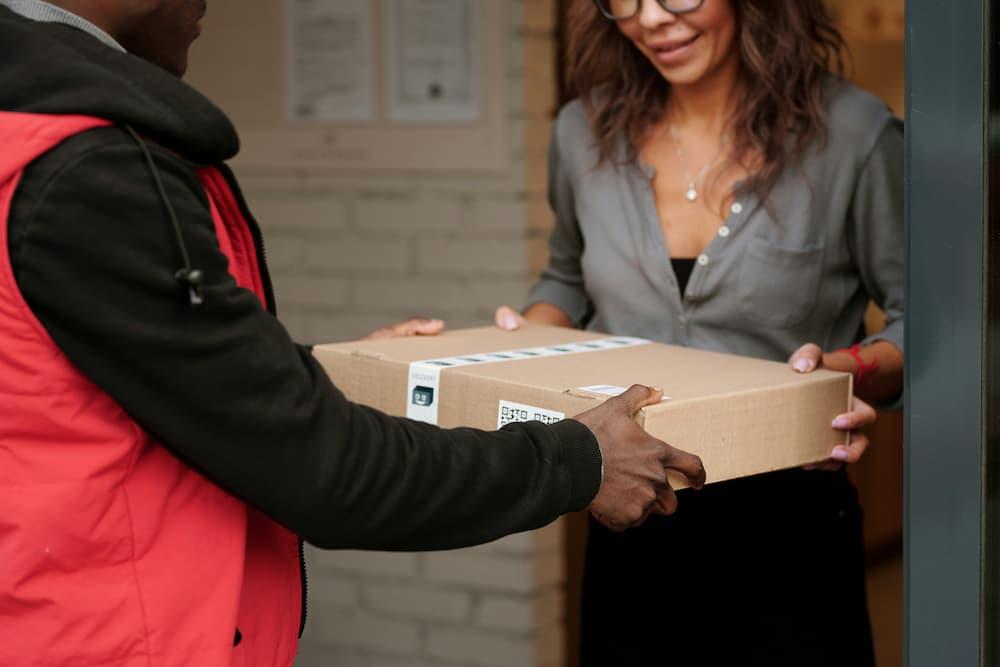In the competitive world of delivery-only kitchens, customer relationships are crucial. Unlike traditional dine-in restaurants, delivery kitchens have limited touchpoints to connect with customers, making every interaction count.
Establishing strong customer relationships is essential for fostering loyalty, encouraging repeat orders, and creating positive word-of-mouth. We will explore practical strategies to build lasting relationships with your delivery customers, helping you turn one-time orders!
What is customer relationship management (CRM) in restaurants?
Customer Relationship Management (CRM) in restaurants is a strategic approach to building, maintaining, and nurturing strong connections with customers throughout their entire experience with the restaurant.
Unlike the traditional dining experience, where face-to-face interactions are a core component of customer service, CRM in delivery restaurants emphasizes technology-driven solutions to maintain personalized and engaging experiences even at a distance.
Effective CRM in a restaurant context involves using tools and practices to understand customers' preferences, order habits, and feedback. This information helps restaurants tailor their service, communications, and offerings to meet customer needs and create a more memorable experience. For instance, a CRM system can track customer ordering patterns, allowing the restaurant to send personalized recommendations or special offers that align with each customer's tastes.
CRM in restaurants also includes efficient communication and consistent follow-up with customers. This could mean sending order updates, post-delivery thank-you messages, or surveys to gather feedback. By being proactive and responsive, restaurants can address any concerns immediately, leaving customers with a positive impression and encouraging repeat business.
Ultimately, CRM helps restaurants build long-term loyalty, enhance customer satisfaction, and increase the lifetime value of each customer. It turns each customer interaction into an opportunity to strengthen the relationship, ensuring that customers feel appreciated and valued with every order.
Read More: Overcoming food delivery challenges: strategies for success
Top tips for building customer relationships in delivery restaurants

1. Provide clear communication from order to delivery
Customers appreciate transparency. Make sure they are informed at every step—from order confirmation to delivery status. Real-time tracking and updates through SMS or app notifications help customers know exactly when to expect their food. Additionally, sending a personalized message (like “Thanks for ordering from [Restaurant Name]!”) can make the experience more engaging and enjoyable.
2. Ensure consistent quality and accuracy in every order
Consistently delivering accurate and high-quality orders is fundamental. Incorrect orders, missing items, or delays can harm customer trust and reduce the likelihood of repeat business. Implement rigorous quality checks, monitor order accuracy, and aim to deliver food at the right temperature. These small efforts help build customer confidence in your reliability.
3. Personalize the customer experience
Personalization makes customers feel valued. Add customized touches, like a thank-you note or a discount code for their next order. Consider using CRM tools to remember customer preferences and provide tailored recommendations based on past orders. Personalized experiences can turn a one-time customer into a loyal advocate for your restaurant.
4. Request and act on customer feedback
Gathering feedback is crucial for understanding customer needs and identifying areas for improvement. Follow up with customers after each order, asking them to rate their experience. Encourage open feedback and be prompt in addressing any issues. By showing customers that you value their input, you build trust and demonstrate a commitment to continuous improvement.
5. Implement a loyalty program or discount incentive
Rewarding customers for their loyalty is one of the best ways to foster long-term relationships. Implement a loyalty program where customers earn points with each order, redeemable for discounts or free items. Alternatively, offer a small discount for their next order as a thank-you. These programs encourage repeat business and strengthen customer ties.
6. Train your staff on excellent customer service practices
Customer service extends beyond order delivery. Train your team to interact professionally and respectfully with customers, whether handling complaints or responding to inquiries. Prompt, courteous communication with customers—whether by phone, chat, or email—can make a lasting positive impression, reinforcing your commitment to excellent service.
7. Use technology to streamline and personalize customer interactions
Leverage CRM systems, order management platforms, and data analytics to better understand customer preferences, order histories, and interactions. By using this data, you can personalize future communications, anticipate customer needs, and make the ordering process as seamless as possible. CRM tools also help you track repeat customers and provide targeted offers, boosting engagement and loyalty.
Why building customer relationships leads to long-term success
Investing in customer relationships goes far beyond immediate sales; it’s about building a loyal base of customers who consistently choose your restaurant over competitors. This loyalty not only drives repeat business but also generates valuable, organic marketing through word-of-mouth referrals and positive online reviews.
Satisfied customers are more likely to recommend your restaurant to friends, family, and social networks, amplifying your reach and reducing marketing costs over time.
Furthermore, loyal customers are often more forgiving of occasional issues, such as delivery delays, because they trust the quality of your service and feel valued. Building strong relationships establishes a foundation of trust and reliability, making customers more likely to return even if minor issues arise.
Retaining loyal customers is also more cost-effective than constantly acquiring new ones, as it costs five to seven times less to keep a customer than to attract a new one.
Additionally, nurturing customer relationships enables you to gather insights into customer preferences, order trends, and satisfaction levels. In essence, when you invest in building strong customer relationships, you’re creating a stable customer base that contributes to your restaurant’s long-term success.
This commitment to customer care not only increases individual customer lifetime value but also builds a community of advocates who will help your business grow organically.
Boost customer loyalty and satisfaction with CloudKitchens
At CloudKitchens, we provide the tools and support delivery restaurants need to streamline their operations, allowing owners and operators to focus on what matters most: their customers.
Ready to grow your customer relationships and enhance loyalty? Visit CloudKitchens.com to learn how we can support your restaurant's journey toward a more efficient and customer-focused delivery model.
DISCLAIMER: This information is provided for general informational purposes only and the content does not constitute an endorsement. CloudKitchens does not warrant the accuracy or completeness of any information, text, images/graphics, links, or other content contained within the blog content. We recommend that you consult with financial, legal, and business professionals for advice specific to your situation.






